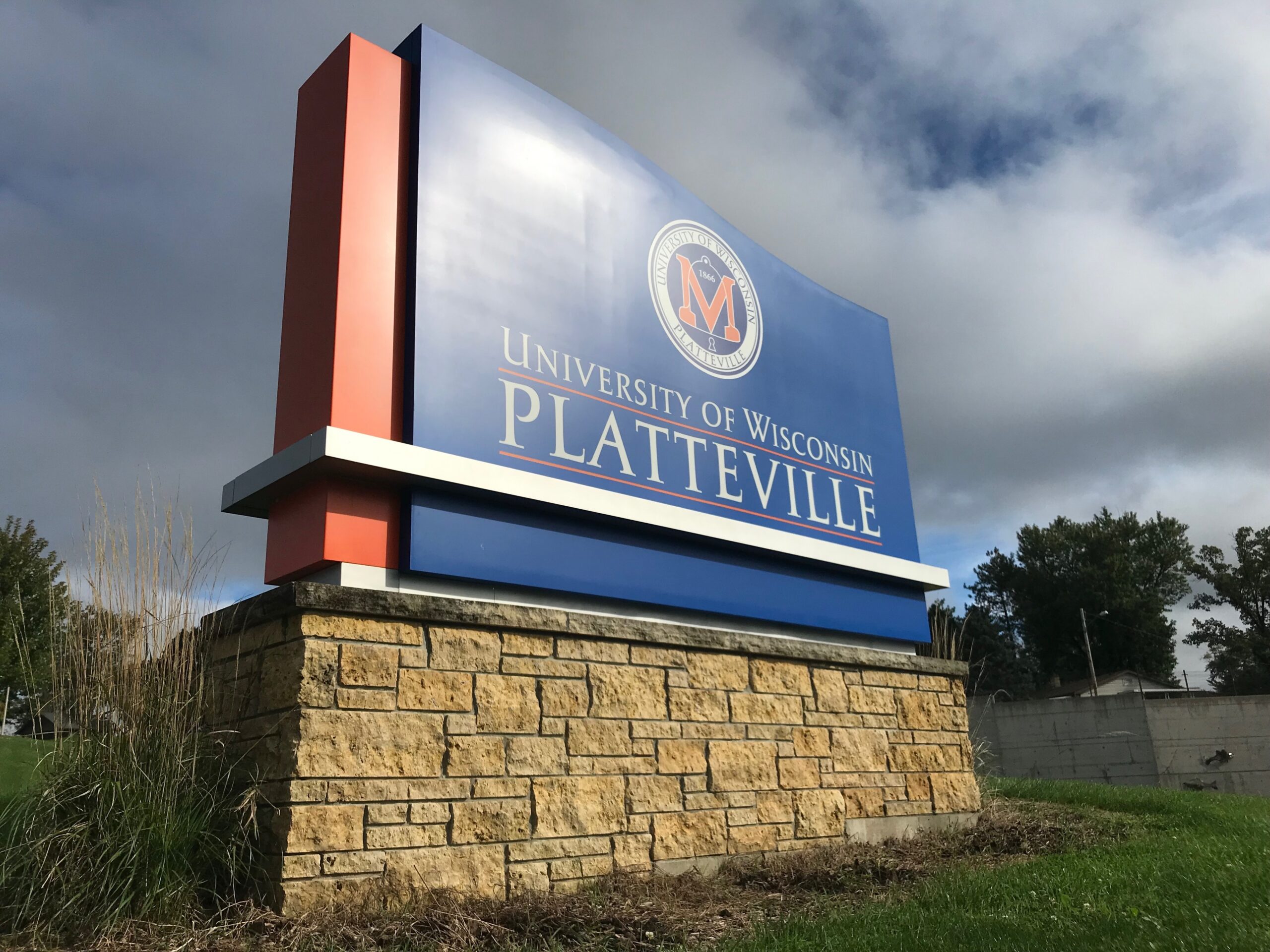The University of Wisconsin-Green Bay is considering discontinuing some programs, citing shifting student demands and budget constraints.
It’s the latest in a series of budget cutting moves by state colleges, and comes as the school said it’s the fastest-growing university in the state.
In a letter to faculty and staff Tuesday, UW-Green Bay Provost and Vice Chancellor of Academic Affairs Kate Burns said the school is considering discontinuing majors in economics, environmental policy and planning and theater and dance, as well as minors in international environmental studies, geography and physics.
News with a little more humanity
WPR’s “Wisconsin Today” newsletter keeps you connected to the state you love without feeling overwhelmed. No paywall. No agenda. No corporate filter.
She wrote that if economics and theater and dance majors are eliminated, minors in those subjects would remain.
Data provided by UW-Green Bay shows the three majors each have enrollment below 40 students. The minors each have less than 10 students. The university has 10,338 total students.
Burns told Wisconsin Public Radio that program enrollment numbers can fluctuate as students either enroll in or out of majors and minors.
She said the college has not made a final decision on the programs. But she said courses in the subjects would continue to be offered even if the majors and minors are discontinued.
“We would continue to offer coursework in those areas,” she said. “Economics is core to our business curriculum. It’s in our general education requirements. It would be a matter of then what courses are you going to offer as part of that versus having a major or minor.”
She said the university is responding to demand from both students and the local workforce, as well as budget constraints.
“With limited resources, I think it’s always important to assess what’s going well and what you need to tweak,” Burns said. “We are engaged in that process across the university of determining where we can best use our limited resources.”
She also said UW-Green Bay is required to ensure that students already enrolled in programs are able to finish their major or minor.
But Max Kasal, a sophomore at UW-Green Bay, said he worries discontinuing majors and minors would limit students’ options.
“If you think you have an interest in econ, and you go take a couple of economics classes, and you realize, ‘OK, cool, this is what I want to do for my career,’ then you’re kind of in an interesting situation, because you can’t major in economics here,” he said.
On Wednesday, the university announced its enrollment increased by 7.6 percent from 2022, making it the third-largest regional comprehensive university in the Universities of Wisconsin.
Burns said UW-Green Bay’s “ability to think differently about education” to meet regional and workforce demands has been the difference in allowing the school to grow.
“We really see our role as providing access to higher education within the region, whatever form that may take, and we really believe that’s resonating with folks and that’s why we’re seeing these increased numbers,” she said.
But UW-Green Bay freshman Sam Morris said he thinks discontinuing programs could have a negative effect on the enrollment.
“If you’re cutting programs, you’re going to have less people who are going to come, especially if they want to do a set of courses,” he said.
Despite UW-Green Bay’s enrollment gains, the university hasn’t been immune to financial hardships facing state colleges. Ten of the 13 Universities of Wisconsin campuses projected budget deficits this year — including Green Bay.
Last month, the college announced it would lay off nine staff members and furlough others to address an ongoing structural deficit, according to the Green Bay Press-Gazette.
Meanwhile, UW-Oshkosh is cutting 216 staff positions and UW-Plattville is eliminating 111 positions, both campuses eliminating jobs through a combination of layoffs and early retirement incentives.
The state college system also announced that two-year campuses in Washington County and Fond du Lac will no longer offer classes beginning in June, 2024. The system also said Platteville’s two-year campus in Richland would officially close after it has been without students since May.
Wisconsin Public Radio, © Copyright 2025, Board of Regents of the University of Wisconsin System and Wisconsin Educational Communications Board.






